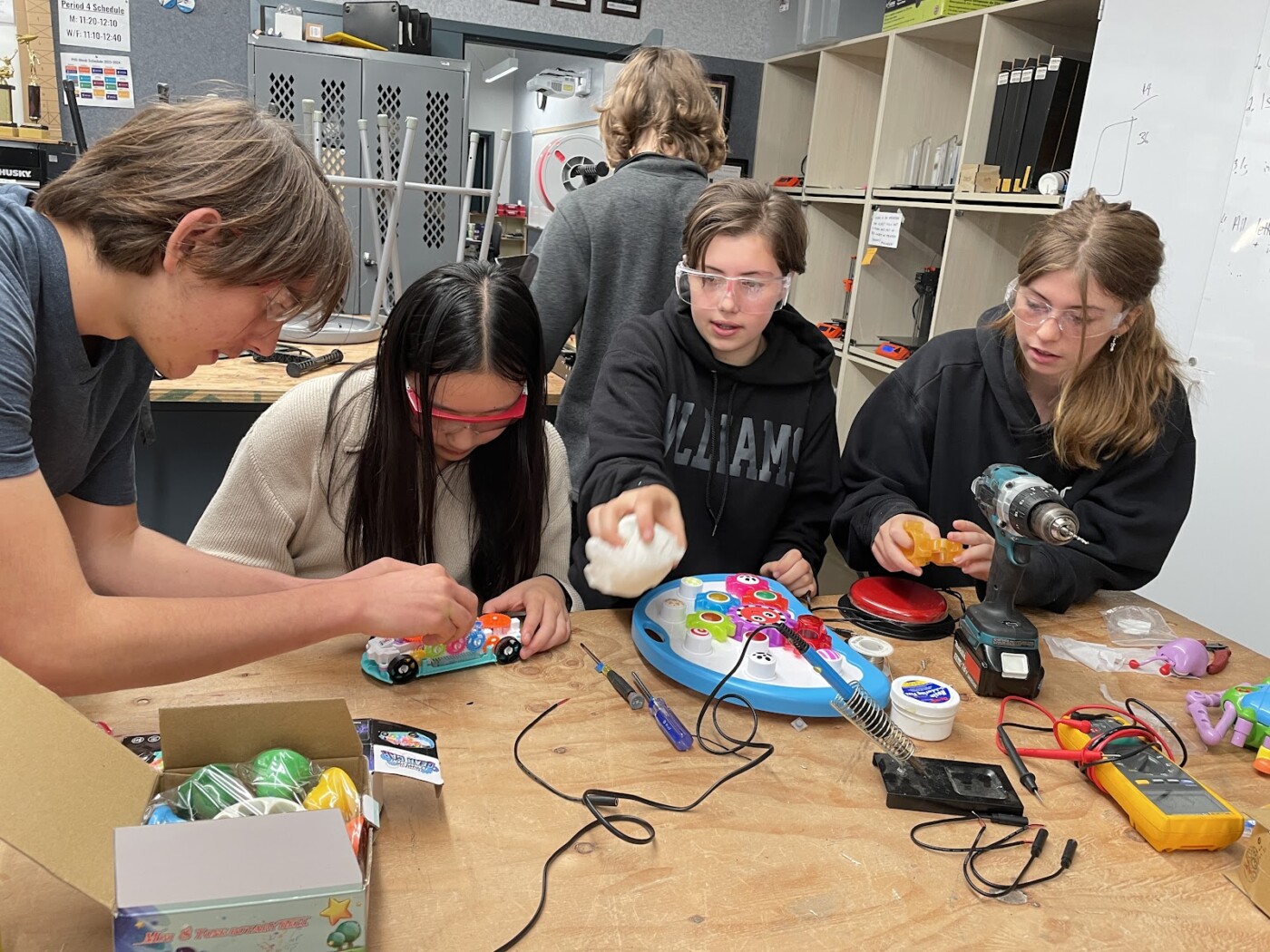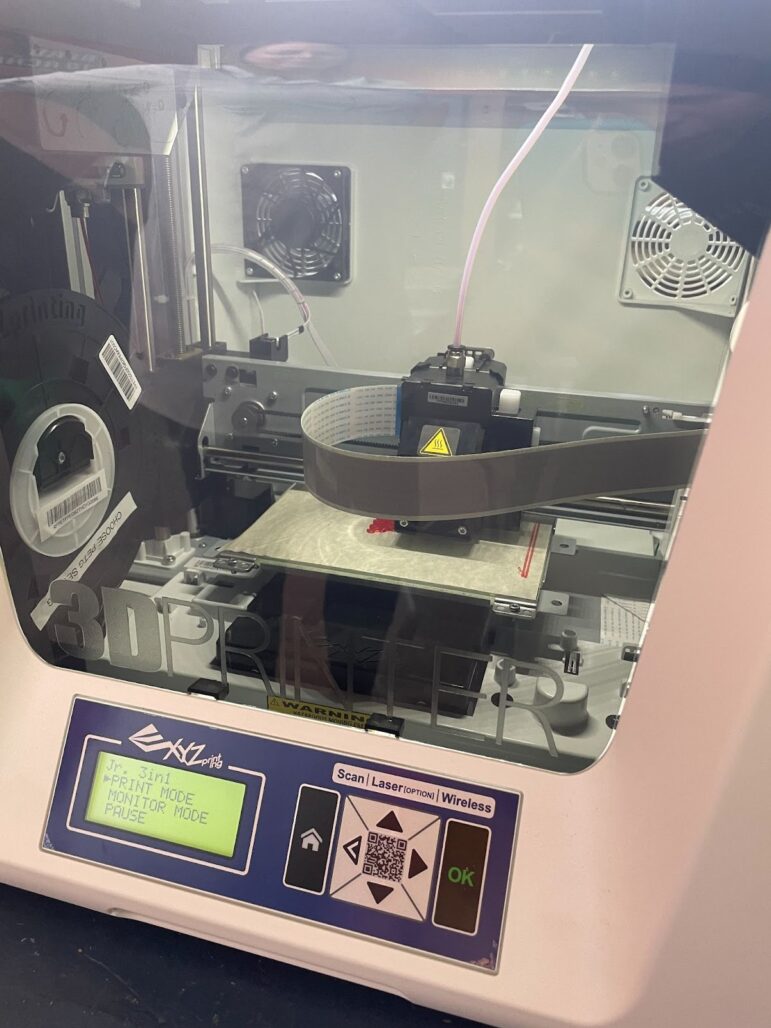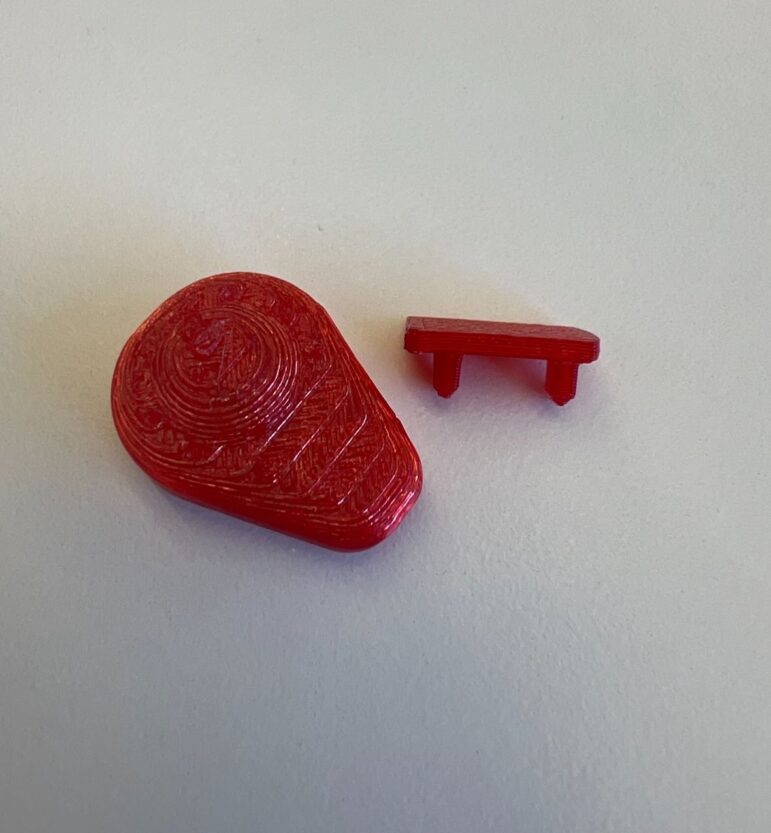Now is the season for service projects
In the FIRST Robotics Competition (FRC) league, fall is referred to as the “off season” — to contrast the intensity of the build and competition season January through April. Highlander Robotics Team 8033 is not “off” and in fact this is our busiest time for our outreach projects. We learn a lot when we build our robot each year. Then through outreach, we leverage our technical skills to teach others and to do service projects.
I’d like to share about one of our ongoing outreach partnerships that we have with Oakland Unified’s Special Education Department (OUSD SPED). We work with Piedmonter Chantal Guite of OUSD to design and fabricate assistive devices for students with a variety of mobility and special needs.
My name is Ilana and I am the 8033/OUSD SPED project liaison this year. I’m a mechanical lead of 8033 and a sophomore at Lick Wilmerding High School in San Francisco. I was able to make this project an independent study at my school. This means that I have been getting school credit for this important work and that I am able to commit more time to what I am passionate about.
Being on the robotics team and working in the Mary G. Ross engineering lab at PHS, I have learned a lot of engineering skills that I apply to this project. To start, I use my ability to visualize and prototype before I get to final solutions. This is really helpful because the students have very individualized needs and one size doesn’t fit all. I have to do a lot of testing to see what will work for each student.
Then I use my technical skills to design a 3d model in CAD so we can fabricate using our laser cutter or 3d printers, depending on the project. My teammates started working with OUSD SPED last year by making over 20 custom iPad communication guides and clips for kids that are non verbal and have mobility challenges. As seen below, the plastic sheets clip onto the devices and guide the student’s fingers to the correct screen button, allowing them to communicate with their teachers and each other.
This year we have expanded the project by making 6 more key guides, but we have also branched out to help with many other projects. First, we created a case for what is called a Blue2, essentially a highly intelligent bluetooth button that can be used for many things such as accessing a computer. The problem is that the settings get changed and these buttons will commonly fall down and break with a tangle of cords coming out of them. We designed and fabricated over 25 Blue2 cases which Chantal hopes to get on every Blue2 they have.
Beyond that, I helped teach several OUSD occupational therapists how to use their 3d printer (below left) so they can fabricate needed devices themselves. So far, they have made a toy hearing aid (below right) so that if a student has a hearing aid their toy can have one too, normalizing the experience.
Toy library project, adapting toys for SPED
We are excited to be working on another new project with OUSD SPED: creating a toy library of adapted toys. 8033 team members are able to modify toys for families with special needs at a much lower price than publicly available. For many of these kids, the only way to interact with toys is via a button, which they click in various ways such as tapping it with their head or knee. Although it is a relatively simple process, adapted toys can be anywhere from 5 to 10 times the price of their unadapted counterparts, making it difficult for lower income families to provide their kids with these modified toys.
Help support our work
So far, Highlander Robotics has adapted over 25 toys and we hope to do much more! I set up a GoFundMe (gofund.me/4debab4d) just for this project so that we can buy more materials and toys to adapt. We will also be collecting gently used electronic toys in a bin outside the Mary G. Ross engineering lab at PHS. To qualify as electric, these toys should be powered via batteries or plug in to a wall outlet.
Find more information on this flier(tinyurl.com/p4r5tuy8)! All adapted toys will be donated to families through the OUSD Special Education Dept or, if the toys are unadaptable, they will be donated to other children in need. If you have any questions please reach out to us at frc8033@piedmontmakers.com.
As a community-based team, we do not receive any funding from school which makes sponsorships essential for our success and sustainability. If you want to support the work we do, please consider donating. We appreciate any form of support, whether that is monetary, food, or materials. This money will support us in building a competitive robot, continuing our outreach, and creating a financially sustainable engineering program. Donations can be made at https://www.piedmontmakers.org/ All donations are tax deductible, and if you would like to learn more or contact us please check out our website: www.frc8033.com and our sponsorship packet. For sponsorship inquiries, please reach out to our business lead Kasper or business mentor Larraine Seiden (larraineseiden.com).




Congratulations to team 8033 and Ilana for leading this very important project and becoming an inspiration in our community